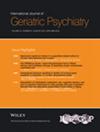Dementia in Turkey–Physician's Perspectives on Facilitating and Challenging Aspects in the Diagnostic Process
Abstract
Objectives
Facilitating and challenging aspects of a non-linear diagnostic process of dementia were explored in interviews with physicians from outpatient clinics of a major hospital in Turkey.
Methods
Semi-structured interviews were conducted with 15 physicians between March and April 2023. Purposive sampling was used to identify clinics that perform dementia diagnostics, including neurology, geriatrics, and psychiatry outpatient clinics. Interviews were audio-recorded, transcribed, and analyzed using qualitative content analysis.
Results
Facilitating and challenging aspects were perceived on three levels: (1) diagnostic procedures and methods, which focus on the assessment of dementia and the aspects that arise in the process; (2) communication, which describes the verbal and nonverbal relationships between health care professionals, patients, and their caregivers, as well as their communication styles; (3) care environment, which describes the various environmental influences on patients, both on a sociocultural and institutional level.
Conclusion
The diagnostic process for dementia involves several interrelated aspects, making a flexible, holistic approach essential. In this study, the social and cultural context of the patients and the involvement of the family emerged as crucial elements. By integrating these aspects, along with a mix of informal and formal communication between healthcare providers and families, the diagnostic process can become more patient-centered and effective. To further improve outcomes, raising awareness and providing education about dementia could reduce stigma and encourage earlier recognition and better management of the condition during the diagnostic process.

 求助内容:
求助内容: 应助结果提醒方式:
应助结果提醒方式:


